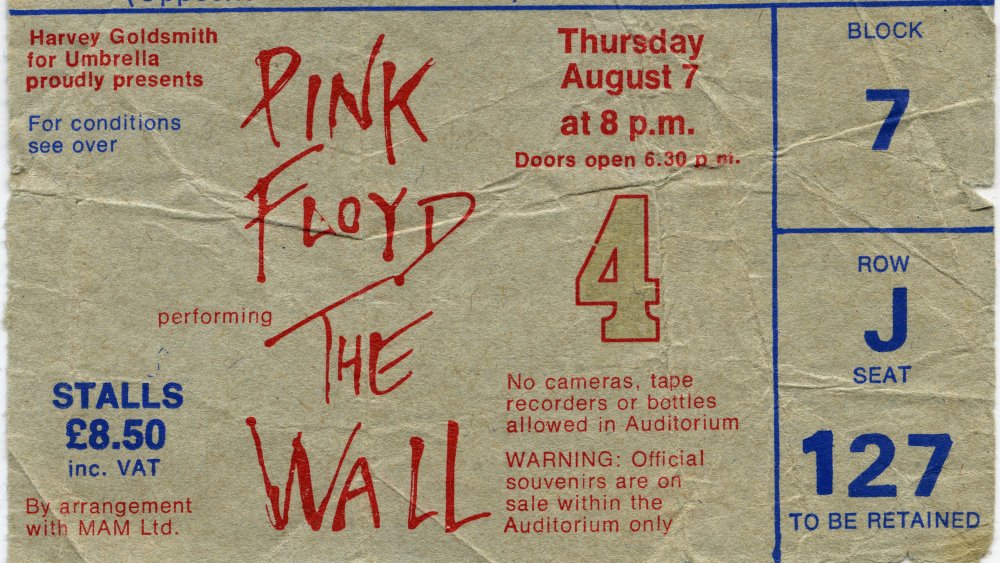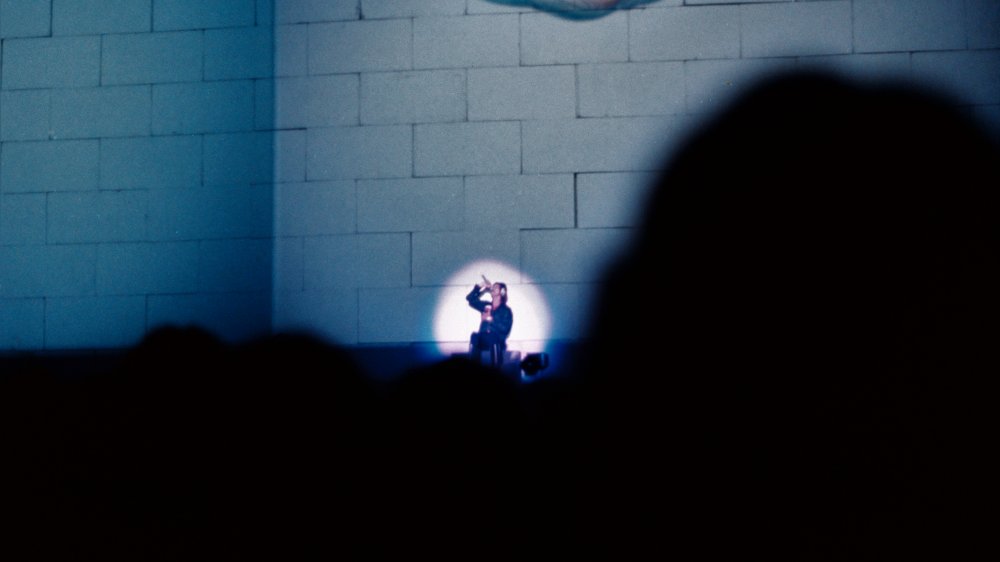The Hidden Meaning Of Pink Floyd's The Wall
One of Pink Floyd's most iconic albums and 87th out of Rolling Stone's 500 greatest albums of all time, The Wall is THE concept album to end all concept albums. Tackling Roger Waters' brainchild, however, brings us to the end of Pink Floyd's 1977 In The Flesh Tour. Waters found the tour alienating, as he'd tell Tommy Vance in a 1979 interview: "I became very conscious of a wall between us and our audience and so this record started out as being an expression of those feelings." So as a type of therapy, Water began to write about it and from there, a script for the story behind The Wall emerged and the album, naturally, begins with "In The Flesh."
The plot summary laid out by thewallanalysis.com, a website devoted to offering an interpretive lens to every single track of The Wall, follows the life of a person named Pink Floyd — bereaved of his father during World War II, consequently subjected to an over-protective mother and other emotional turmoil, to finally becoming an isolated rock star. Tracks such as "Another Brick in the Wall (Part 2)," "Empty Spaces," and "Outside the Wall" all represent Pink's additions to and eventual removal of his metaphorical wall with which he surrounds himself.
Tear down the wall!
Beyond self-pity though, Pink's rock star self-isolation grows with and culminates in a more fascistic, mirroring the nation that killed Pink's father. On the final quarter of the album, "Run Like Hell" plays, during which Pink in mid-hallucogenic breakdown threatens violence against anyone who violates his authoritarian line during his concert. This controlling anger resembles the scene at the end of the In The Flesh Tour that spurred Waters to create the concept for The Wall: "I got so upset [with some shouting and screaming guy in the front row of a show] in the end that I spat at him, which is a very nasty thing to do to anybody. Anyway, the idea is that these kinds of fascist feelings develop from isolation." The parallels continue with Waters' own father, who died during World War II and his suffering at the hands of the English school system, making The Wall an exteriorized version of Roger Waters' struggles through his own trauma and de-isolation.
However, the focus on Waters' own psyche transformed The Wall from a band production into a glorified solo project. As Mark E. Perry point out in The Conversation, this is the last time that the four members of Pink Floyd's longest line-up recorded an album together. In 1985, Roger Waters left Pink Floyd, calling the group a "spent force creatively." The Wall, both as an album and as a film, remains legendary.

